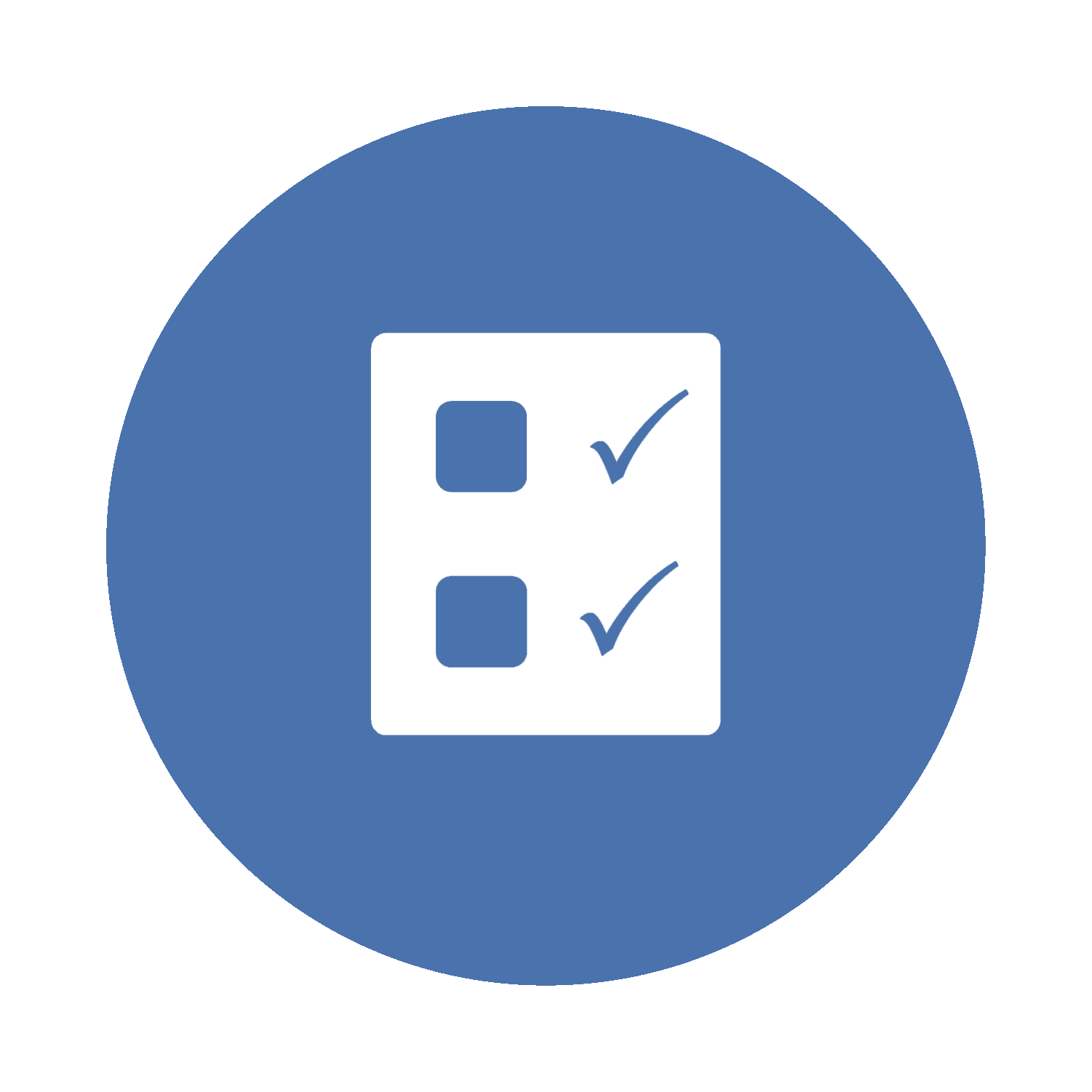01. Introduction to IS Auditing
01.04. Career Paths for and Traits of Successful IS Auditors

 Briefly reflect on the following before we begin:
Briefly reflect on the following before we begin:
- What are the typical educational requirements and certifications of aspiring IS Auditors?
- What makes for an effective IS Auditor?
- Please describe the career advancement paths available to IS Auditors (within and outside the Internal Audit function).
The career of an Information Systems (IS) Auditor offers a dynamic and evolving landscape marked by the intersection of technology, business, and risk management. The IS Auditing profession demands a solid educational foundation in areas such as Information Systems and Business Administration. This foundation is critical as it provides a basic understanding of the systems, underlying risks, and controls (processes) that IS Auditors will evaluate. A career in IS Auditing is challenging and rewarding, requiring a blend of technical know-how, continuous learning, and strong interpersonal skills. In this section, let’s explore critical facets of successful IS Auditors’ career paths and traits.
Educational Requirements and Certifications for IS Auditors
The educational requirements and certifications for IS Auditors are critical components in shaping a successful career in this field as they provide the foundational knowledge and validate the expertise required to perform IS Auditing effectively. A bachelor’s degree in fields such as Information Technology, Computer Science, Accounting, or Business Administration is the foundational educational requirement for an IS Auditor. This degree provides a broad understanding of business processes, IT systems, and basic auditing principles. Advanced degrees, such as a Master’s in Information Systems, Cybersecurity, or Business Administration focusing on IT management, can further enhance an Auditor’s understanding and expertise, particularly for those seeking senior-level positions.
Some IS Auditors may also have degrees in other fields but complement their education with IT and auditing-specific courses. Professionals from technical backgrounds can succeed as IS Auditors if they come in with a skeptical mindset, undergo relevant training on the job, and pursue certifications that help them obtain the relevant knowledge to serve as effective IS Auditors. This flexibility acknowledges the diverse backgrounds from which professionals can enter the field.
Certifications are a cornerstone of the IS Auditing profession, often a requirement for employment and a testament to the holder’s expertise and commitment to the field. Some of the most sought-after certifications that can both augment their technical competencies as well as enable them to gain recognition in their field are presented below for your reference. You are encouraged to review the key benefits, qualifications, requirements, and resources available to attain these certifications and pursue the one(s) that best fit your professional aspirations.
| Certification | Description | Website |
|---|---|---|
| Certified Information Systems Auditor (CISA) |
Offered by the Information Systems Audit Control Association (ISACA), CISA is globally recognized as a gold standard for IS audit professionals. It validates expertise in managing vulnerabilities, ensuring compliance, and instituting controls within an enterprise. CISA holders are recognized for their skills in Auditing, controlling, and ensuring IS, making them invaluable assets in ensuring the integrity and efficiency of IT systems.
|
See the ISACA website for more details. |
| Certified Information Systems Security Professional (CISSP) |
While not exclusively for Auditors, CISSP, offered by the International Information Systems Security Certification Consortium (ISC)², is a prestigious certification in information security. It is ideal for experienced security practitioners, managers, and executives. CISSP covers critical topics in security, such as risk management, cloud computing, mobile security, and application development security. It is renowned for its depth and breadth of information security knowledge and practices.
|
See the ISC2 website for more details. |
| Certified Information Systems Manager (CISM) | Also offered by ISACA, CISM focuses on managing and governance information security. It is tailored for individuals who work, design, oversee, and assess enterprise information security. The certification emphasizes the relationship between information security programs and broader business goals and objectives. | See ISACA website for more details. |
| Certified Internal Auditor |
Offered by the Institute of Internal Auditors (IIA), the Certified Internal Auditor (CIA) is the only globally recognized internal audit certification. It is suited for Auditors involved in monitoring, analyzing, and evaluating business processes and procedures. CIA credential holders are recognized for their risk assessment and business management competence.
|
See The Institute of Internal Auditors website for more details. |
| Certified Public Accountant |
The Certified Public Accountant (CPA) credential is a highly respected accounting qualification offered by the CPA Ontario. It is essential for accountants aiming for senior financial positions. CPAs are recognized for their expertise in accounting principles and practices, including audit, tax, and financial management.
|
See the CPA Ontario website for more details. |
| Certified Fraud Examiner | Awarded by the Association of Certified Fraud Examiners (ACFE), the CFE credential is designed for professionals who detect and deter fraud. It is a vital certification for Auditors, accountants, fraud investigators, and loss prevention specialists. CFEs have proven expertise in fraud prevention, detection, and deterrence. | See the Association of Certified Fraud Examiners website for more details. |
IS Auditor Competencies
The goal of obtaining the proper education and attaining prestigious certifications is to enable IS Auditors to hone their proficiency in conducting effective reviews and assessments. To demonstrate proficiency, IS Auditors must excel in technical and enabling competencies.
Technical competencies refer to the skills and knowledge essential for performing IS Audits. These competencies are grounded in the Auditor’s understanding of IS, cybersecurity, data analysis, and relevant regulatory frameworks. They enable Auditors to navigate complex IT environments, assess the effectiveness of controls, identify system vulnerabilities, and understand the implications of various technologies on the audit process. This expertise is vital for identifying risks and issues and recommending pragmatic solutions to enhance system security and performance.
On the other hand, enabling competencies (also known as soft skills) encompass an IS Auditor’s personal attributes, communication skills, ethical values, and critical thinking abilities. Enabling competencies facilitates collaboration, negotiation, and influence, allowing auditors to navigate organizational dynamics effectively. They enable Auditors to present complex information in an accessible and understandable manner, fostering informed decision-making within an organization. They are also essential in building and maintaining trust with clients and stakeholders, ensuring that the Auditor’s recommendations are received positively and implemented effectively.
The integration of technical and enabling competencies is what truly drives the success of an IS Auditor. While technical competencies allow Auditors to understand and evaluate the critical systems, enabling competencies allow them to communicate their findings effectively, drive change, and add strategic value to an organization. This combination of skills ensures that IS Auditors can identify and analyze risks and vulnerabilities and influence the implementation of robust controls and strategies to mitigate these risks. The most relevant technical and enabling competencies for IS Auditors are outlined below.
Technical Competencies
- Understanding of IT Systems & Infrastructure
- Proficiency in IT systems, including hardware, software, networks, and databases.
- Knowledge of IT infrastructure components, such as servers, hard drives, and networking devices.
- Familiarity w/Operating Systems & Software
- Understanding various operating systems, including Windows, Linux, OS/400, and UNIX.
- Knowledge of critical software applications used in business environments.
- Expertise in IT Security and Cybersecurity
- Understanding of cybersecurity principles, practices, and leading practices.
- Knowledge of threat landscapes, security protocols, encryption, and access controls.
- Proficiency in Data Analysis and Data Mining
- Skills in data analysis and the ability to use data analytics and visualization tools.
- Competence in data mining techniques for uncovering patterns and insights.
- Knowledge of IT Governance and Frameworks
- Understanding IT governance principles and frameworks like COBIT, ITIL, and ISO/IEC 27001.
- Ability to assess the alignment of IT strategy with business objectives.
- Familiarity with Auditing Standards & Practices
- Knowledge of auditing standards, such as those set by ISACA and the IIA.
- Understanding of audit methodologies, evidence-gathering techniques, and procedures.
- Expertise in Risks & Controls Evaluation
- Ability to evaluate the effectiveness of IT controls.
- Skills in conducting IT risk assessments and identifying potential vulnerabilities.
- Understanding of Emerging Technologies
- Awareness of emerging technologies like cloud computing, AI, IoT, and blockchain.
- Ability to assess the risks and controls related to these technologies.
- Proficiency in Regulatory Requirements
- Understanding compliance requirements relevant to IT, such as GDPR, HIPAA, SOX, etc.
- Ability to assess IT compliance with these regulations.
- Skills in IT Project & Change Management
- Knowledge of IT project management principles and practices.
- Understanding of change management processes in IT environments.
Enabling Competencies
- Communication Skills
- Clarity in verbal and written communication to explain complex IT concepts lucidly.
- Practical listening skills to understand stakeholder concerns and gather relevant information.
- Critical Thinking and Analytical Skills
- The ability to analyze data critically to identify issues and anomalies in IT systems and processes.
- Problem-solving skills to devise practical solutions for the issues identified during audits.
- Attention to Detail
- Meticulousness in examining IT systems and controls to ensure every aspect is noticed.
- Precision in reporting to convey audit findings and recommendations accurately.
- Ethical and Professional Integrity
- Adherence to ethical standards and professional integrity is vital in maintaining trust and credibility.
- Discretion, especially when handling sensitive or confidential information.
- Interpersonal Skills
- The ability to work effectively with different teams and individuals in a synergistic manner.
- Collaboration skills to work cohesively with audit team members and other departments.
- Project Management Skills
- Competency in managing audit projects, including planning, execution, and meeting deadlines.
- Skills in organizing and prioritizing tasks to ensure efficient audit workflow.
- Adaptability and Flexibility
- The ability to adapt to changing technologies, regulations, and auditing standards.
- Flexibility in dealing with unexpected issues or changes in audit scope or objectives.
- Leadership and Teamwork
- Leadership skills for guiding and mentoring junior Auditors or leading audit teams.
- Ability to work effectively as part of a team, contributing positively to team dynamics.
- Conflict Resolution
- Skills in resolving conflicts during audits, either within the audit team or with auditees.
- Diplomacy in handling sensitive issues or disagreements.
- Continuous Learning Mindset
- Commitment to continuous professional development with the latest trends in IS Auditing.
- Openness to feedback and willingness to learn from experiences.
Career Opportunities and Advancements for IS Auditors
Career opportunities for Information Systems (IS) Auditors are diverse and evolving, reflecting the growing importance of IT in all business sectors. With the right mix of skills and experience, IS Auditors can advance in various directions within the field.
Entry-level Roles
For those beginning their journey in IS Auditing, entry-level positions such as Junior IS Auditor, IT Compliance Analyst, or Risk Assessment Specialist serve as the launchpad. These roles typically involve working under the guidance of experienced Auditors, learning the nuances of conducting IS Audits, understanding regulatory requirements, and gaining familiarity with various auditing tools and techniques. They offer valuable hands-on experience in assessing IT systems, identifying risks, and understanding the control environments of different organizations.
Mid-level Roles with Expanding Responsibilities
As IS Auditors gain experience and expertise, they progress to mid-level positions like Senior IS Auditor, Audit Manager, or Information Security Analyst. These roles come with greater responsibilities, including leading audit projects, managing teams, and developing audit plans and strategies. They require a deep understanding of technical aspects and strong leadership and project management skills. Professionals at this level are often involved in more complex audits, providing recommendations to senior management, and playing a pivotal role in shaping the organization’s IS governance and risk management strategies.
Senior-level Leadership Roles
At the senior level, career options expand into specialized and leadership roles such as IT Audit Director, Chief Information Security Officer (CISO), or Head of IT Governance. These positions involve strategic planning, policy development, and oversight of the organization’s entire IS audit function. Professionals in these roles are responsible for aligning the IS audit strategy with the business objectives, ensuring compliance with evolving regulations, and leading digital risk management initiatives. They are key advisers to top management and decision-makers, influencing the organization’s information security and risk approach.
Other Roles
IS Auditors can also play advisory or consulting roles and provide expert advice to various organizations on IT governance, risk management, and security matters. They can also take on the training role to raise awareness around the role and importance of IT control culture. Moreover, IS Auditing also offers various avenues for specialization, such as cybersecurity, blockchain, data privacy, cloud computing, artificial intelligence, machine learning, robotics, nanotechnology, etc. IS Auditors can scan the environment for the latest developments in these technologies and relevant risks and evaluate whether the organization has sufficient measures to address those risks. Outside the traditional assurance role, IS Auditors can do so as subject-matter experts and sounding boards.
Professional Associations and Resources for IS Auditors
For IS Auditors, professional associations and resources play a crucial role in career development, networking, and staying updated with industry trends and standards. These associations provide a platform for learning, certification, and professional growth. The most influential professional associations for IS Auditors include:
- ISACA (Information Systems Audit and Control Association): Globally recognized, ISACA serves professionals in IS Auditing, risk management, governance, and cybersecurity. It offers certifications like CISA (Certified Information Systems Auditor), CRISC (Certified in Risk and Information Systems Control), and CISM (Certified Information Systems Manager) for IS Auditors. ISACA’s local chapters organize local events, seminars, and conferences, fostering a community that shares knowledge and best practices. ISACA provides research, white papers, online courses, and conferences. See https://www.isaca.org/ for more details.
- The Institute of Internal Auditors (IIA): The IIA is a leading body for internal Auditors, including those specializing in IT. It offers certifications like Certified Internal Auditor (CIA) and Certification in Risk Management Assurance (CRMA). The IIA releases publications, guidance materials, standards for Auditing, and educational events. See https://www.theiia.org/ for more details.
- CPA Ontario (Certified Public Accountant): CPA Ontario is critical for IS Auditors, especially those whose work intersects with accounting and financial Auditing. It offers the CPA designation, is esteemed in accounting and finance and is valuable for Auditors dealing with financial IS. CPA Ontario provides training, certification, and accounting and IT auditing guidelines. See https://www.cpaontario.ca/ for more details.
- Association of Certified Fraud Examiners (ACFE): The ACFE offers resources and training in fraud prevention, detection, and deterrence, which benefits Auditors specializing in fraud examination within IS Auditing. The ACFE provides research, tools, and fraud detection and prevention training. See https://www.acfe.com/ for more details.
In addition to access to relevant insights, leadership thoughts, and access to certifications, these professional associations also offer ample networking opportunities. Networking is a cornerstone for success in Information Systems (IS) Auditing, playing a critical role in the professional development and advancement of Auditors. The value of a robust professional network cannot be overstated in a rapidly evolving industry where technological changes and regulatory updates are constant.
Networking with peers and industry experts gives IS Auditors valuable insights and the latest trends. This information is crucial for staying ahead in a field where knowledge needs to be updated to avoid significant risks and audit failures. Networking events, conferences, and professional meetings serve as platforms for knowledge exchange. They offer learning opportunities from case studies, shared experiences, and best practices. This continuous learning is vital in an area where the complexity and sophistication of IS are increasing. A robust network can open doors to new career opportunities. Many job vacancies in specialized fields like IS Auditing are filled through referrals and professional connections. Networking can thus be instrumental in learning about and accessing these opportunities. For both emerging and seasoned Auditors, having a network of experienced professionals provides access to mentorship and support. This guidance is invaluable, particularly when facing complex audit challenges or making significant career decisions. Active participation in professional circles helps build a knowledgeable and engaged IS Auditor reputation. It positions individuals as active contributors to the field, which can benefit career advancement, particularly into leadership roles.
 In the Spotlight
In the Spotlight
For additional context on the core auditing competencies, please read the article titled “IT Audit Specialist Job Profile” [opens in new tab].
ACCA. (2023). IT audit specialist. https://www.accaglobal.com/gb/en/qualifications/why-acca/competency-framework/job-profiles/digital-roles/it-audit-specialist.html
 Key Takeaways
Key Takeaways
Let’s recap the key concepts discussed in this section by watching this video.
Source: Mehta, A.M. (2023, December 6). AIS OER ch 01 topic 04 key takeaways [Video]. https://youtu.be/y2XbyPM1E4o
 Knowledge Check
Knowledge Check
A globally recognized certification for IS audit professionals, validating expertise in managing vulnerabilities, ensuring compliance, and instituting controls within an enterprise.
A prestigious certification in information security covering critical topics in security such as risk management, cloud computing, and application development security.
The delivery of different services through the Internet, including data storage, servers, databases, networking, and software.
The CISM certification is designed for management-focused professionals who are responsible for designing, managing, and overseeing an organization's information security by emphasizing the relationship between information security and the broader business goals, rather than just technical expertise.
The only globally recognized internal audit certification, suited for auditors involved in monitoring, analyzing, and evaluating business processes and procedures.
A highly respected accounting qualification essential for accountants aiming for senior financial positions.
A certification designed for professionals who detect and deter fraud, vital for auditors, accountants, fraud investigators, and loss prevention specialists.
The practice of examining large databases in order to generate new information.
The need for ongoing learning and adaptation to stay abreast of technological changes, regulatory updates, and evolving industry best practices.

